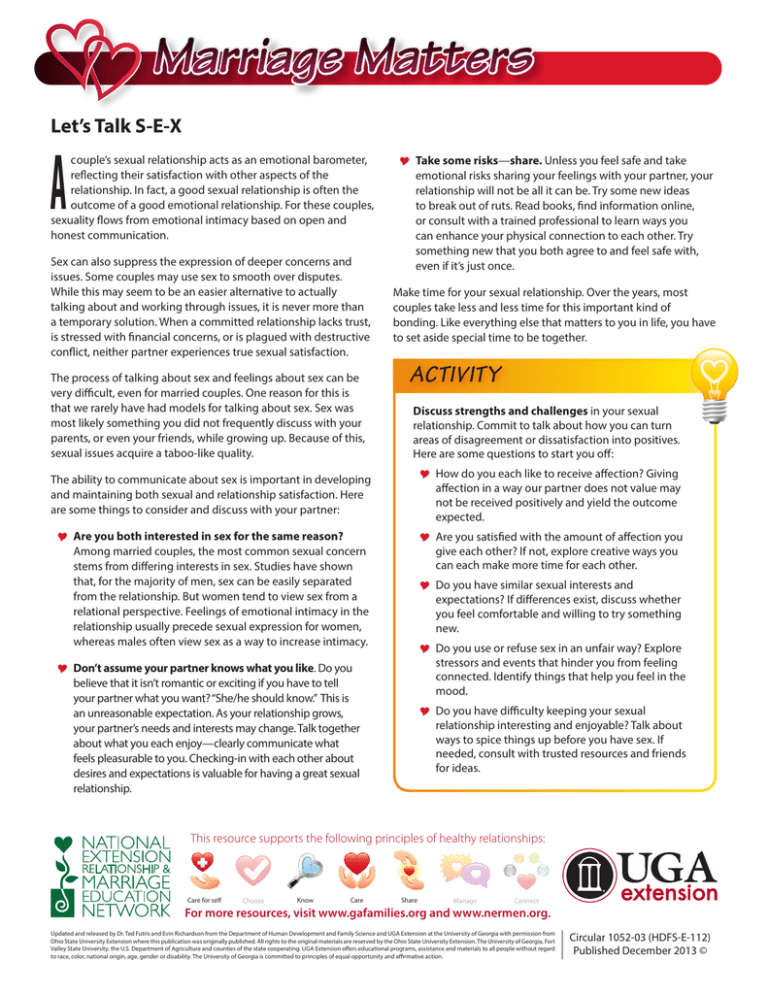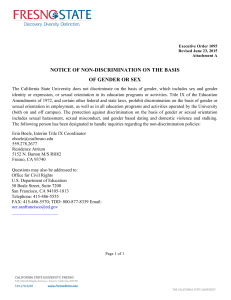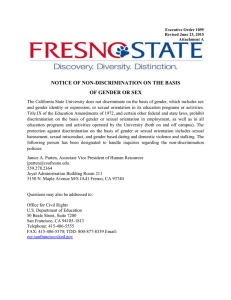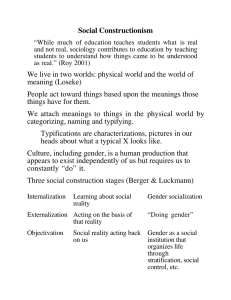A
advertisement

Let’s Talk S-E-X A couple’s sexual relationship acts as an emotional barometer, reflecting their satisfaction with other aspects of the relationship. In fact, a good sexual relationship is often the outcome of a good emotional relationship. For these couples, sexuality flows from emotional intimacy based on open and honest communication. Sex can also suppress the expression of deeper concerns and issues. Some couples may use sex to smooth over disputes. While this may seem to be an easier alternative to actually talking about and working through issues, it is never more than a temporary solution. When a committed relationship lacks trust, is stressed with financial concerns, or is plagued with destructive conflict, neither partner experiences true sexual satisfaction. The process of talking about sex and feelings about sex can be very difficult, even for married couples. One reason for this is that we rarely have had models for talking about sex. Sex was most likely something you did not frequently discuss with your parents, or even your friends, while growing up. Because of this, sexual issues acquire a taboo-like quality. � Take some risks—share. Unless you feel safe and take emotional risks sharing your feelings with your partner, your relationship will not be all it can be. Try some new ideas to break out of ruts. Read books, find information online, or consult with a trained professional to learn ways you can enhance your physical connection to each other. Try something new that you both agree to and feel safe with, even if it’s just once. Make time for your sexual relationship. Over the years, most couples take less and less time for this important kind of bonding. Like everything else that matters to you in life, you have to set aside special time to be together. ACTIVITY Discuss strengths and challenges in your sexual relationship. Commit to talk about how you can turn areas of disagreement or dissatisfaction into positives. Here are some questions to start you off: The ability to communicate about sex is important in developing and maintaining both sexual and relationship satisfaction. Here are some things to consider and discuss with your partner: � How do you each like to receive affection? Giving affection in a way our partner does not value may not be received positively and yield the outcome expected. � Are you both interested in sex for the same reason? Among married couples, the most common sexual concern stems from differing interests in sex. Studies have shown that, for the majority of men, sex can be easily separated from the relationship. But women tend to view sex from a relational perspective. Feelings of emotional intimacy in the relationship usually precede sexual expression for women, whereas males often view sex as a way to increase intimacy. � Are you satisfied with the amount of affection you give each other? If not, explore creative ways you can each make more time for each other. � Do you have similar sexual interests and expectations? If differences exist, discuss whether you feel comfortable and willing to try something new. � Do you use or refuse sex in an unfair way? Explore stressors and events that hinder you from feeling connected. Identify things that help you feel in the mood. � Don’t assume your partner knows what you like. Do you believe that it isn’t romantic or exciting if you have to tell your partner what you want? “She/he should know.” This is an unreasonable expectation. As your relationship grows, your partner’s needs and interests may change. Talk together about what you each enjoy—clearly communicate what feels pleasurable to you. Checking-in with each other about desires and expectations is valuable for having a great sexual relationship. � Do you have difficulty keeping your sexual relationship interesting and enjoyable? Talk about ways to spice things up before you have sex. If needed, consult with trusted resources and friends for ideas. This resource supports the following principles of healthy relationships: Care for self Choose Know Care Share Manage Connect For more resources, visit www.gafamilies.org and www.nermen.org. Updated and released by Dr. Ted Futris and Evin Richardson from the Department of Human Development and Family Science and UGA Extension at the University of Georgia with permission from Ohio State University Extension where this publication was originally published. All rights to the original materials are reserved by the Ohio State University Extension. The University of Georgia, Fort Valley State University, the U.S. Department of Agriculture and counties of the state cooperating. UGA Extension offers educational programs, assistance and materials to all people without regard to race, color, national origin, age, gender or disability. The University of Georgia is committed to principles of equal opportunity and affirmative action. Circular 1052-03 (HDFS-E-112) Published December 2013 ©




